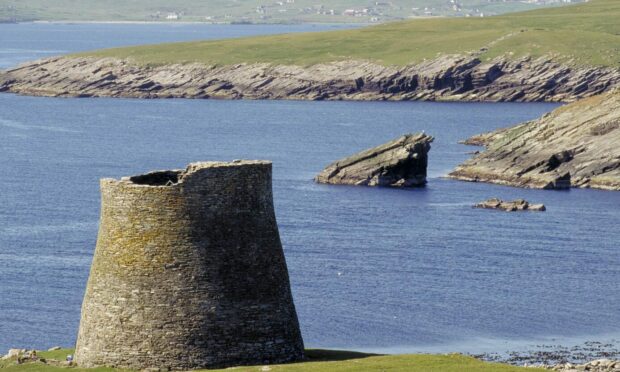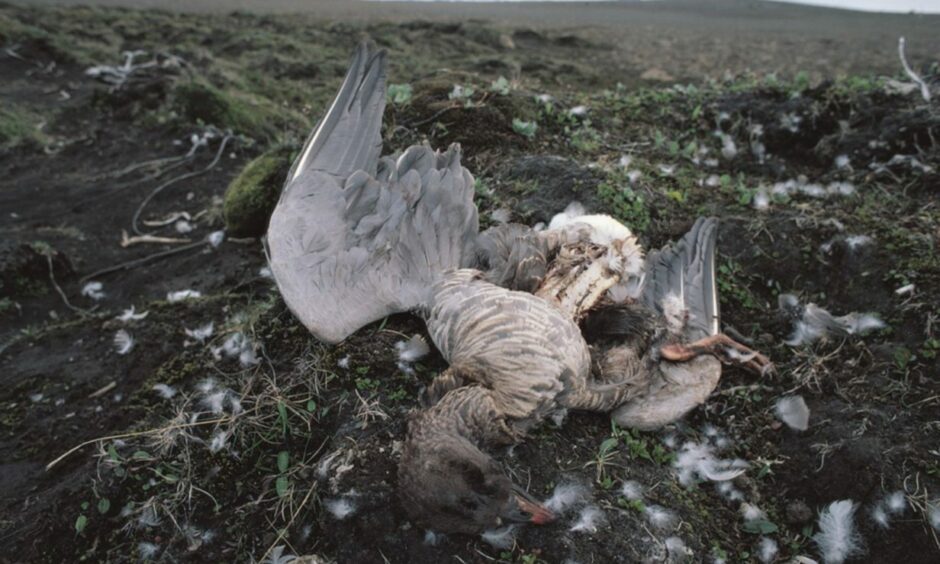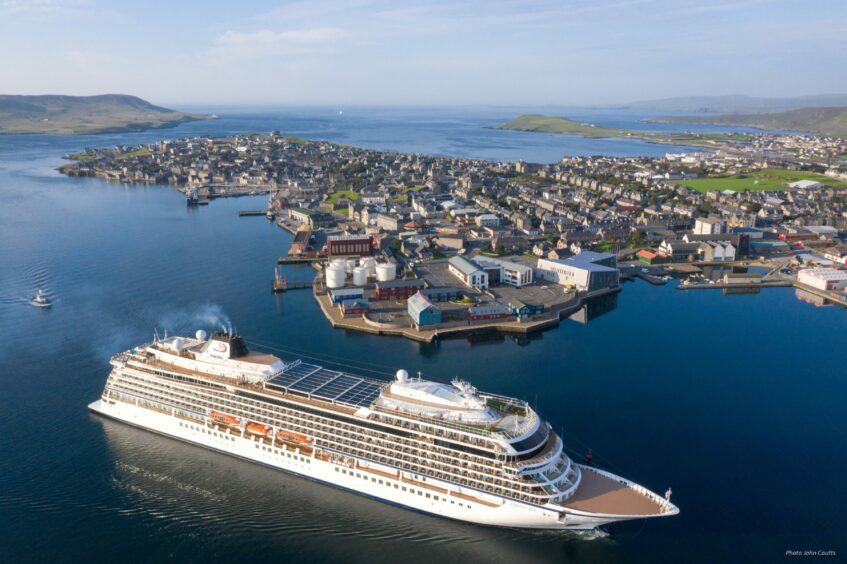Public landings on the Shetland island will come to a halt and the popular Mousa broch will close to help limit the spread of bird flu.
The island in Shetland joins another 23 Scottish islands where public landings have been advised to come to a halt.
It is hoped this will help limit the spread of avian flu, give a chance for the chicks to fledge and give the seabirds the best possible chance of recovery.
From Saturday, July 30, the Mousa boat will stop running for the remainder of the 2022 season. Mousa’s famous Iron Age broch is also being closed by Historic Environment Scotland until mid-October.
‘Not an easy decision’
Eileen Stuart, NatureScot’s deputy director of nature and climate change, said the decision to restrict visits to the island had not been easy.
However, she said it was ultimately the need for fresh water to clean footwear that proved to be impossible.
She said: “We are increasingly concerned about the terrible effect avian flu is having in Shetland’s seabird colonies.
“Together with the Scottish Government and the Animal and Plant Health Agency, we have looked at biosecurity measures to allow the broch to remain open to the public while the storm petrels are nesting.
“However, the logistics of getting enough clean water out to the broch and ensuring that visitors can clean and disinfect their footwear adequately has proved too challenging for this season.”
Around 11,000 breeding pairs of European storm petrels, known as alamooties in Shetland, reside on Mousa. This represents around 2% of the entire global population of the species.
Many of these pairs nest within the walls of Mousa Broch. While storm petrels rarely mix with other birds, avian flu can survive for many days in bird faeces and soil.
Due to this, it was decided the danger of the petrels picking up the virus from where visitors have walked was too high a risk.
Thankful for ‘sacrifices being made by tour operators’
Helen Moncrieff, RSPB Scotland’s Shetland Manager, said: “We greatly appreciate the decision to stop running the boat service to Mousa to give the precious seabirds on the island the best chance of survival during this devastating outbreak of avian flu.
“The impact avian influenza is having on tour operators is incredibly tough, particularly after the last few years. We are grateful for the sacrifices that The Mousa Boat company, and other tour operators elsewhere in Scotland, are making to help limit the spread.”
Visiting cruises, recreational boats and sea kayakers are also being asked not to land on Mousa until mid-October.
NatureScot will review the risk again in March 2023.


